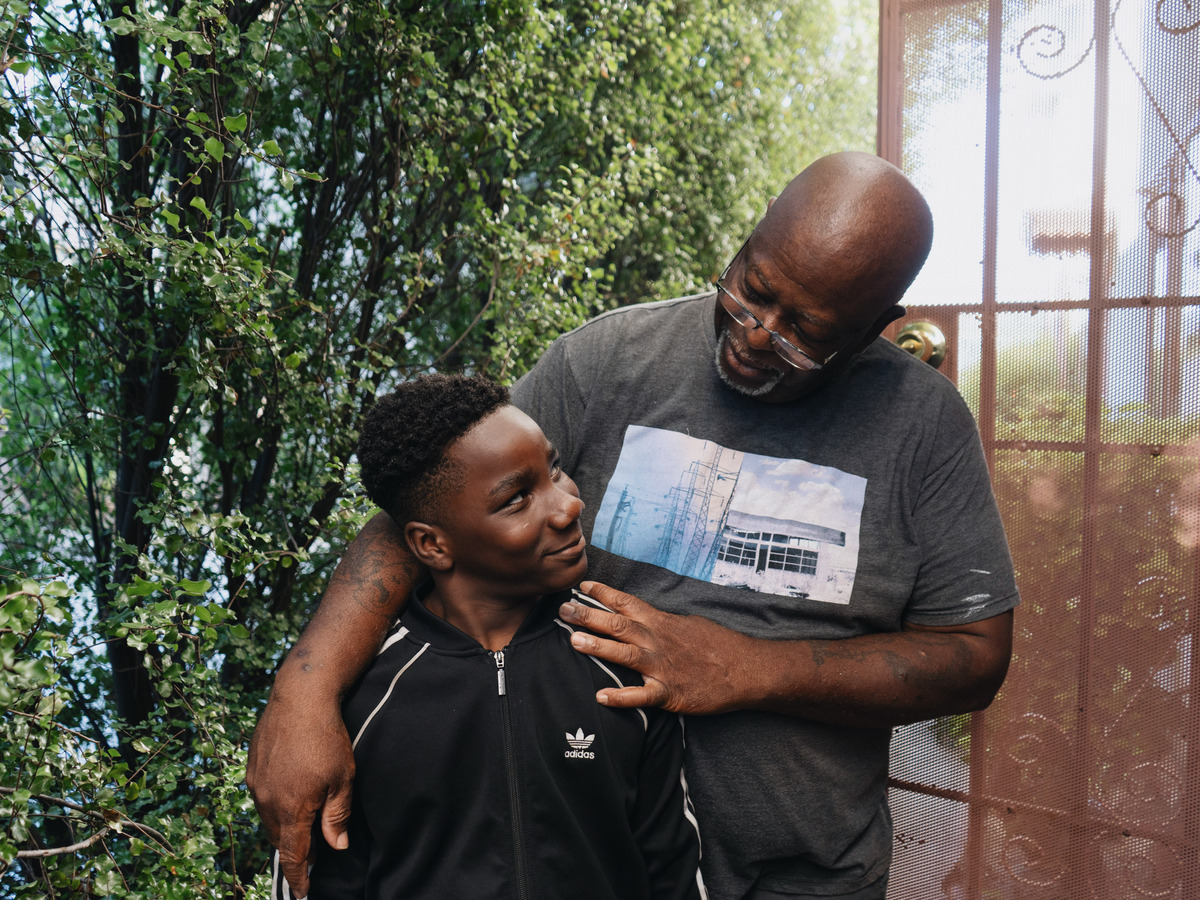
Ricky Brown with his grandson Zaire Gearring outside of their home in Los Angeles, Calif. Brown is a new client in an LA program that uses AI to help people from falling into homelessness. Grace Widyatmadja/NPR hide caption

Ricky Brown with his grandson Zaire Gearring outside of their home in Los Angeles, Calif. Brown is a new client in an LA program that uses AI to help people from falling into homelessness.
Grace Widyatmadja/NPROne of the main challenges to countering homelessness is to figure out who's most at-risk of losing their homes and getting them the resources they need. Now, in a first-of-its-kind experiment, Los Angeles is using artificial intelligence to help make those predictions and keep people in their homes.
NPR's Jennifer Ludden reports on the program and meets people who are benefitting from this new use of AI technology.
Email us at
This episode was produced by Connor Donevan, Mia Venkat, Christine Arrasmith and Gus Contreras. It was edited by Catherine Laidlaw and Adam Raney. Our executive producer is Sami Yenigun.

 Live Radio
Live Radio